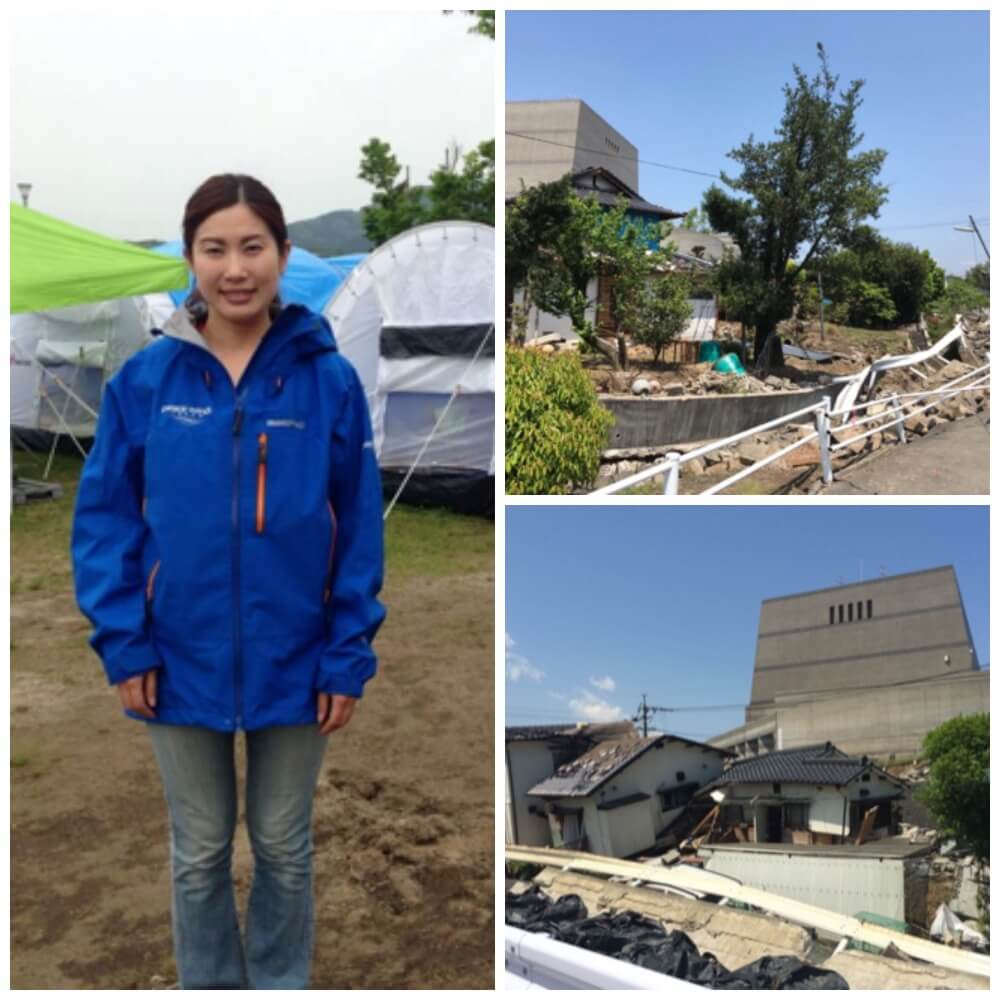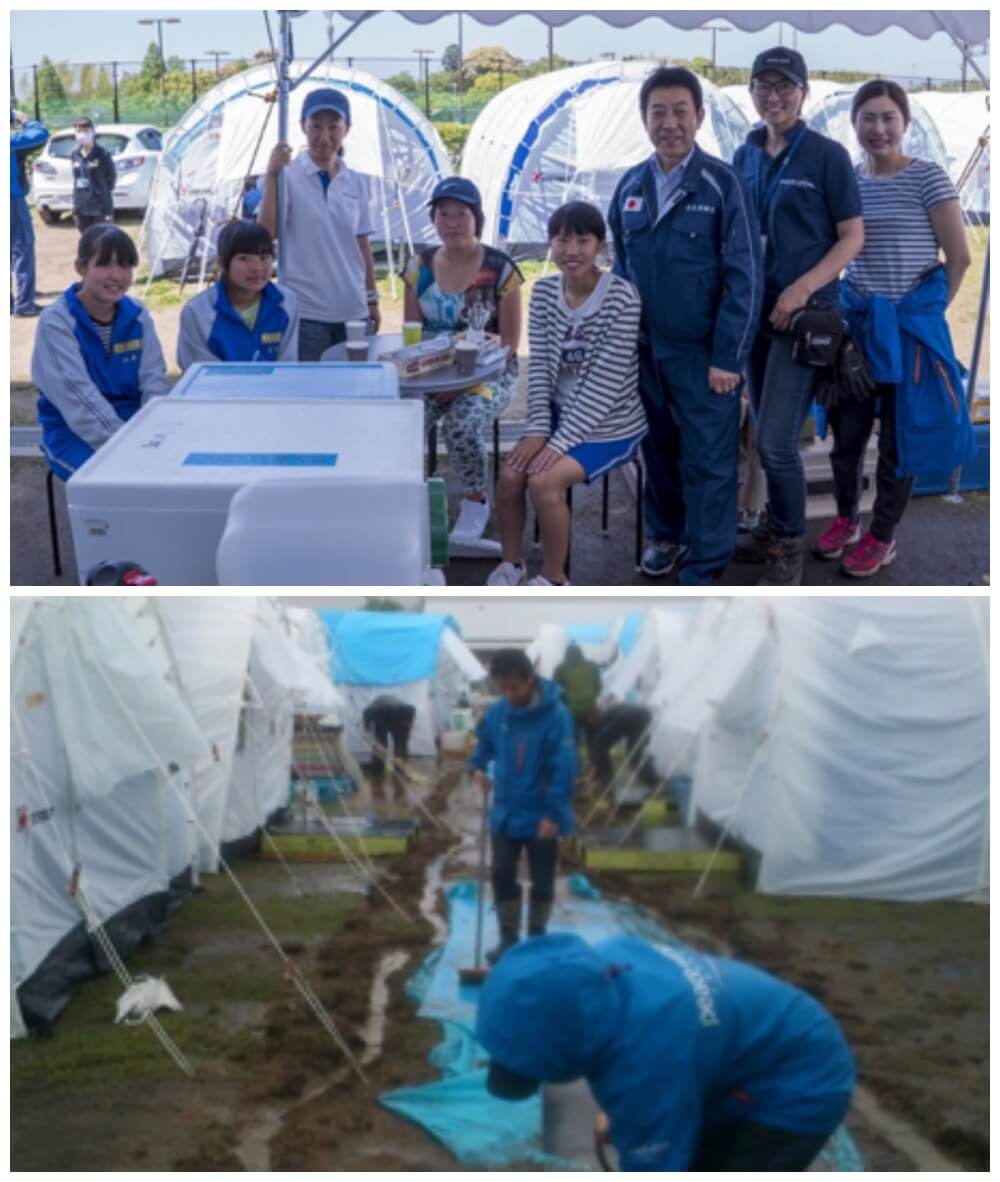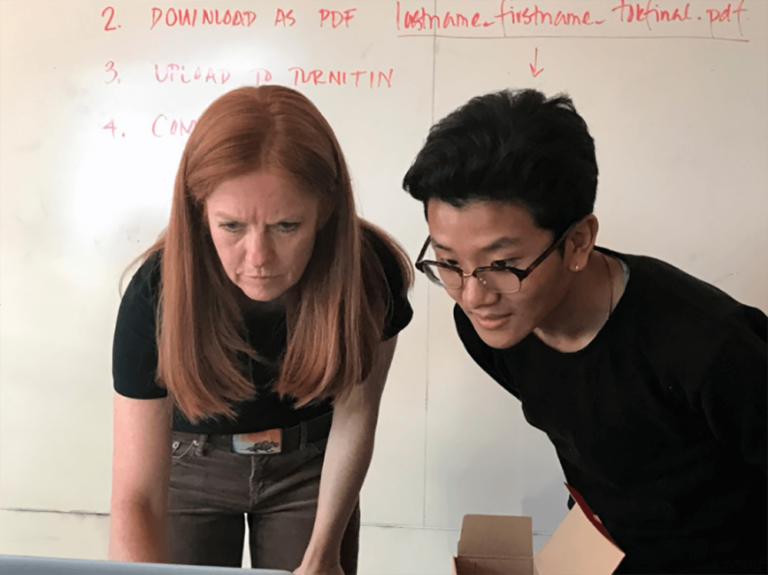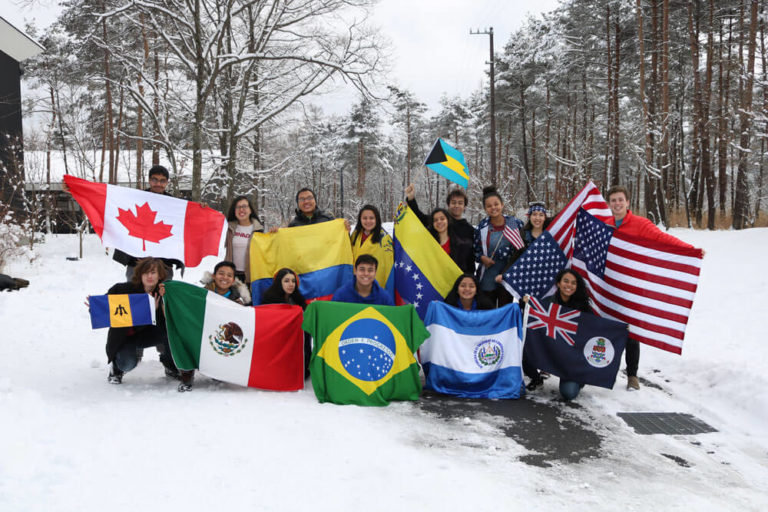
ISAKのスタッフ、中野生子がGWに熊本県上益城郡益城町にボランティアに行ってきました。
On April 16, 2016, a series of earthquakes shook the Kumamoto Prefecture in the Kyushu Region of Japan. While everyone at ISAK was completely safe and far away from the earthquakes (Kyushu is located over 1,100 kilometers south of Karuizawa), many of us wished we could help the people of Kumamoto.
One ISAK staff member, Seiko Nakano (Development Manager) decided to use her spring vacation to travel to the area and volunteer at a temporary tent village organized by three NGOs: Civic Force, Peace Winds Japan, and A-PAD Japan. She served as one of the operational staff helping to manage the community space. While Ms. Nakano felt she was able to be useful during her stay, she wishes to return again on an ongoing basis, and she has inspired ISAK students to volunteer as well.
Ms. Nakano connected ISAK students Atsuki, Kosuke, Taichi, Hanaka and Ran with Peace Winds Japan. The students met with representatives from the NGO last week and are now planning to go to Kumamoto to volunteer with the organization during the upcoming summer break. As Ms. Nakano pointed out, two of the biggest challenges volunteers face after a natural disaster are transportation and accommodations. The students have already begun to work on how they will pay for their trip and are working to find an adult to escort them to the area.
ISAK’s Project Nepal, founded by three Nepali students in 2015, has raised over $20,000 in support of earthquake relief in Nepal. ISAK students are eager to provide support for earthquake victims here in Japan as well.
Here is a brief description of Ms. Nakano’s experience:
“I spent a week volunteering at the temporary tent village organized by three emergency support NGOs (Civic Force, Peace Winds Japan, A-PAD Japan). The three organizations set up the tent village next to the gymnasium in Mashiki Town, Kumamoto, one of the areas that was hit hardest by the earthquake. The tent village included tents for people to sleep (especially people who had pets and therefore could not stay in typical evacuation shelters), distributed food and supplies, and provided a community space.
I served as one of the operational staff in charge of running the community space. As temperatures were quite hot during the day, we provided the inhabitants with cold drinks, listened to their concerns and made notes of their requests. It might be a Kumamoto cultural trait, but not many inhabitants voiced complaints. Even though most of the people staying in the tent village had their homes totally or partially destroyed by the earthquakes, they were initially upbeat when they were talking to me. However, by the end of my time there, some of the residents began to express their innermost feelings. ‘Can you imagine what it is like to have your entire assets be destroyed right in front of your eyes?’ I had no easy response.
I talked to people who were dealing with family conflicts that surfaced as a result of the earthquake, people who wanted to move into the tent village from another temporary shelter due to personality conflicts. Even after one week as a volunteer, I was unable to find the right words to ease the pain felt by the inhabitants.
One experience that made me sad was the number of volunteers who were trying to be helpful in the wrong way. For example, there were volunteers who dropped off a big load of disposable cooling sheets without thinking about the garbage that would be created. There were also people who sent used items, including old dog leashes, that were not wanted or useful to the people in the temporary shelters. Some people came to volunteer but then left without doing anything when they realized that they couldn’t volunteer in the way they wanted to, or complained about getting stuck cleaning toilets all day. Volunteers in natural disaster areas should not expect to be able to select the kind of projects they want to do. Volunteers need to consider what kind of help they would want, if they were in the shoes of the victim or the local government.
Also, there is not always enough temporary housing or rental cars for volunteers from outside the area, so sometimes it’s best to make a monetary contribution to a local organization that is operating in the area, rather than try to participate in person without a solid plan. Unless you live close enough to go home at night, you might end up making extra work for the on-the-ground organizations. I encourage people to not volunteer unless they have a firm plan and a place to stay.”
-Seiko Nakano
We are grateful for Ms. Nakano’s service to the people of Kumamoto and for her help and guidance to the ISAK students who would like to make a difference by volunteering there this summer.






